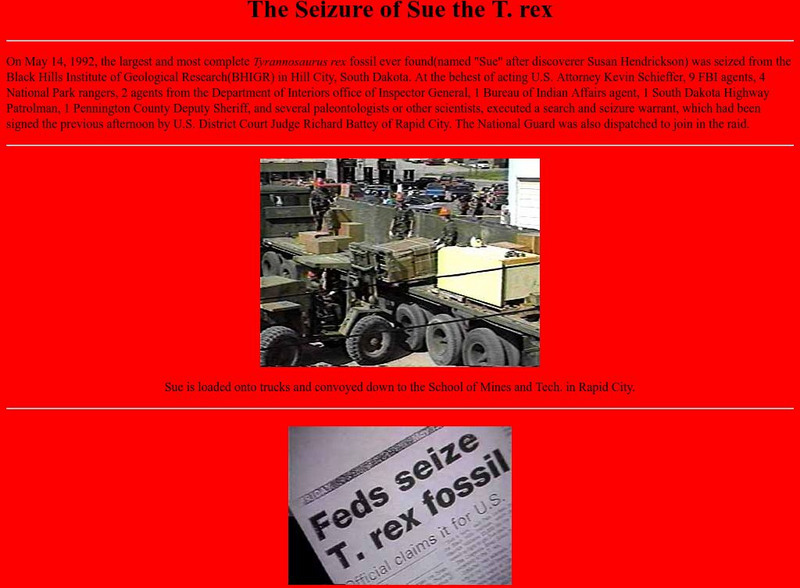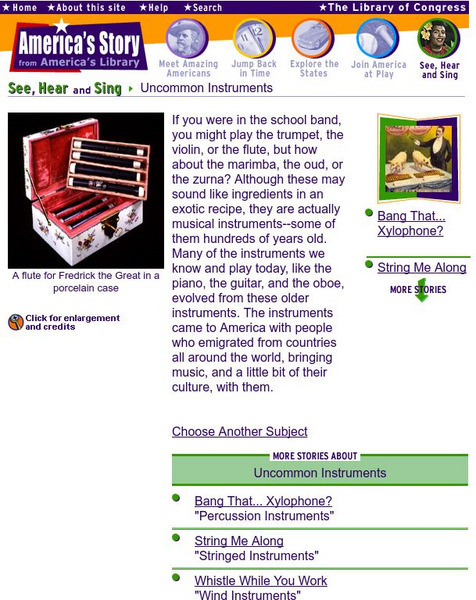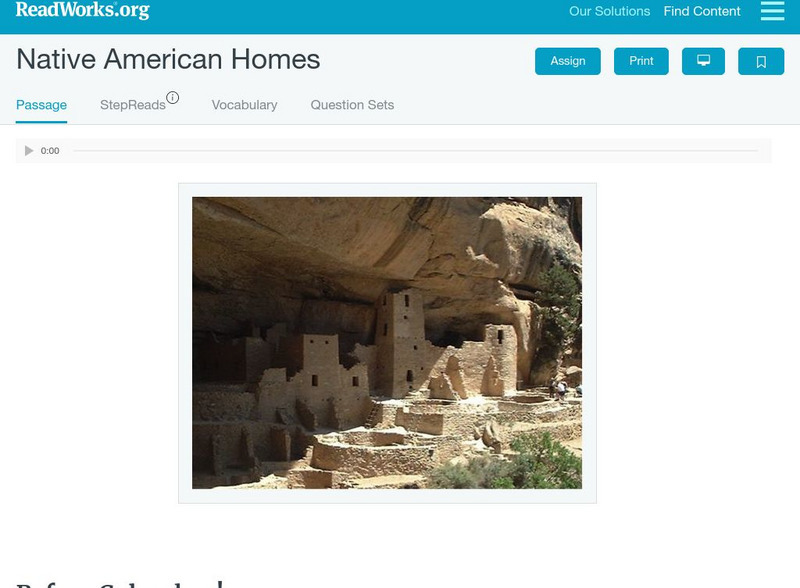PBS
Pbs Teachers: The Hunt for Nazi Scientists: Von Braun's Rockets
Learn about the life and accomplishments of Wernher Von Braun and other Nazi space scientists through this interactive timeline. Discover how he came to the United States in Operation Paperclip and why he is known as the father of the...
Smithsonian Institution
National Portrait Gallery: Ballyhoo! Posters as Portraiture
Visit an example-rich exploration of poster art and learn how famous faces have been used to convey meanings and messages across the decades. An excellent resource for discovering how art can be a window into a particular time, Ballyhoo!...
US Environmental Protection Agency
Epa: The Planet Protectors: Activities for Kids
Through this EPA resource, explore your environment and discover the animals, plants, air, and water around you. Learn how to protect the world we live in with fun games.
National Endowment for the Humanities
Neh: Edsit Ement: Who Were the Foremothers of Women's Equality?
Which women made significant contributions to the early Women's Rights Movement in the U.S.? In this teaching unit, students will discover the women involved in the formative years of the struggle for women's rights and the history of...
Wikimedia
Wikipedia: 1983 Beirut Barracks Bombing
The bombing of the U.S. Marine barracks in Lebanon in 1983 was a major terrorist incident. Discover facts about this deadly event from Wikipedia encyclopedia.
Other
Pan Terra Inc.: The Seizure of Sue the T. Rex
Sue T. Rex is the largest, most complete Tyrannosaurus Rex skeleton to date. It was discovered and excavated by the Black Hills Institute of Geological Research in South Dakota. The U.S. Government seized Sue from the Institute in 1992...
Other
Monticello: A Day in the Life of Thomas Jefferson
Discover citizen and U.S. President Thomas Jefferson's daily routine, habits, inventions, and the home that he designed for his Virginia plantation.
Library of Congress
Loc: America's Story: Maine
What's a bean hole bean? What is the closest U.S. port city to Europe? Discover the answers to these questions and more from this Library of Congress fun-fact article.
Library of Congress
Loc: America's Story: Uncommon Instruments
The emigration of various cultures into the U.S. gives birth to many many instruments such as the piano, guitar and oboe. Discover the history behind these instruments.
A&E Television
History.com: Infographics: The Story of Money
Get the facts on the earliest forms of money and the origins of the U.S dollar, discover which country created the first paper money, and find out how the Inca built a great empire without using money.
Council for Economic Education
Econ Ed Link: The Family Vacation
Students will take a surprise trip around the world. As they travel, they will use clues to discover where they are going. They will then figure out how much money they have spent in U.S. dollars, using exchange rates.
iCivics
I Civics: A Dive Into Democracy
The Founding Fathers had many influences. Discover how aspects of Athenian democracy shaped the structure and ideals of the U.S. government.
A&E Television
History.com: What Happened to Twa Flight 800?
Minutes after its take off from New York's Kennedy International Airport, a Boeing 747 headed for Paris exploded midair over the Atlantic Ocean off the coast of Long Island on July 17, 1996, leaving all 230 people aboard dead. The...
Read Works
Read Works: Native American Settlements
[Free Registration/Login Required] An informational text about the different types of homes lived in by Native Americans throughout America. A question sheet is available to help students build skills in reading comprehension.
Other
Us flag.org: The History of Flag Day
The author of this site provides a solid base of information about the U.S. flag that includes the evolution of the flag and the history of Flag Day. Students will discover why the flag is known as Old Glory and the important role...
Smithsonian Institution
National Postal Museum: Art of the Stamp: Joseph Priestley
View the artwork for a U.S. postage stamp issued in 1983 to commemorate Joseph Priestley, the scientist who discovered oxygen. With a short passage on his contributions to the teaching of history, religion, and science.
Curated OER
Anna Hall, c.p. Li, Mrs. Auborn Hall, Morris Schaeffer, Mrs. Johnnie Johnson
Scientists at the U.S. Public Health Service's Communicable Disease Center in Montgomery, Alabama, had just discovered that the Brunhilde type of polio virus could be grown in mice. Shown, left to right, are: Mrs. Anna Hall, C.P. Li,...












